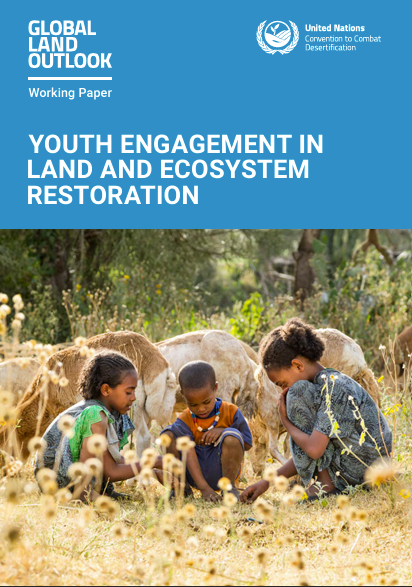Youth Engagement in Land and Ecosystem Restoration
Land and ecosystems lay the foundation of the economy and the wellbeing of society. 85 percent of the world’s 1.2 billion young people live in regions that are directly dependent on land and natural resources for sustenance. Land degradation is a youth issue that threatens current and future generations’ quality of life. Young people are increasingly becoming eco-anxious about threats to their environment and the possible impacts there may be for future generation.



